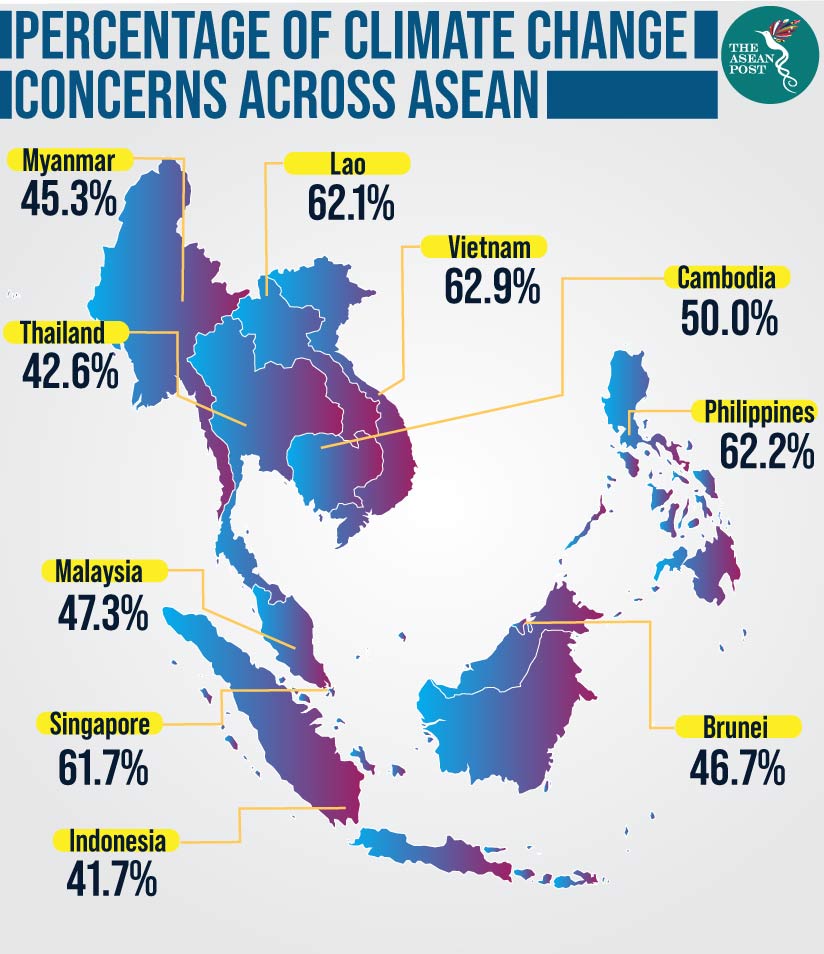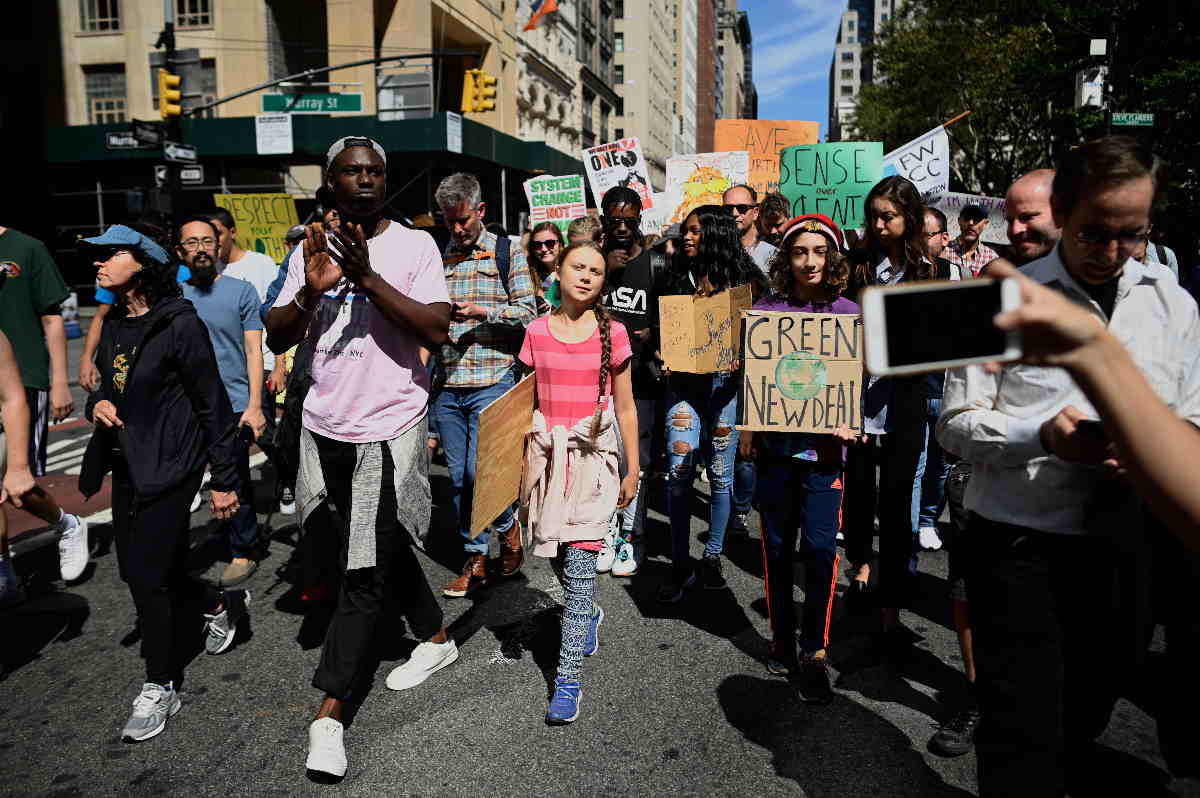Millions of youths, activists and adults in hundreds of cities around the world walked out of school and work on Friday to join a global strike calling for action against climate change. The Global Climate Strike was planned ahead of a United Nations (UN) General Assembly and the Climate Action Summit on 23 September. They are doing so to demand governments take urgent steps to tackle the climate crisis and prevent an environmental catastrophe.
Across continents, youths waved placards and chanted slogans in the biggest ever demonstration over climate crisis.
The strike was organised by young people who are part of the ‘Fridays for Future’ campaign which is a movement following a call from activist Greta Thunberg. In 2018, Thunberg started skipping school to protest against the inaction of political leaders in addressing climate change, staging the first ‘School Strike for Climate’ outside her national parliament in August last year. Since then, inspired students have walked out of their schools on Fridays to protest.
Prior to the strike, a new short film was released, narrated by Thunberg and activist, George Monbiot. The video serves as a call for action to protect, restore and fund natural climate solutions.
“There is a magic machine, that sucks carbon out of the air, costs very little and builds itself. It’s called – a tree,” explained Monbiot in the film. A tree is an example of natural climate solutions and together with mangroves, jungles, marshes, kelp forests and coral reefs take carbon out of the air and lock it away.
Monbiot said that “nature is a tool we can use to repair our broken climate.” But “natural climate solutions get just two percent of all the money used on tackling climate breakdown,” he adds.
Public perception
A recent survey by the ASEAN Studies Centre and ISEAS-Yusof Ishak Institute, titled, ‘The State of Southeast Asia: 2019 Survey Report,’ revealed that climate change ranks third among the top security concerns (51.6 percent) after domestic political instability (53.7 percent) and ethnic and religious tensions (52.9 percent).
The report found that climate change is the top security concern in Lao (62.1 percent), the Philippines (62.2 percent), Singapore (61.7 percent) and Vietnam (62.9 percent). But concerns for climate change is low in Malaysia (47.3 percent), Thailand (42.9 percent) and Indonesia (41.7 percent).

Indonesia’s low concern for climate change is disconcerting as the country’s need for serious climate action is critical. Especially after the recent forest fires in the country that covered much of Southeast Asia in a dense cloud of smoke. Ratri Kusumohartono, a Greenpeace forest activist said that Indonesia’s future lies in the hands of the country’s youth. “We have to change the mindset that says that economic development means that we have to sacrifice the environment.”
There is awareness in Malaysia about the climate crisis but Dr Mohd Yusoff Ishak, an environmental expert at Universiti Putra Malaysia (UPM) said that “perception varies among your sampling population,” citing an article revealing that Malaysian “farmers in Kedah are moderately adaptive to climate change.” He added that farmers are among the most affected by the crisis.
From another observation, Dr Rosli Omar, a former lecturer at the University of Malaya told The ASEAN Post, that even if Malaysians are aware of climate change, to them “it still seems like it is in the distant future.”
Dr Mohd Yusoff also told The ASEAN Post that concerns in climate change rank low “when compared to the cost of living and security issues in Malaysia.”
Perhaps the pursuit of wealth especially in developing countries distances people from the bigger issues. Monbiot said that “the continued pursuit of wealth in a world that has enough already (albeit very poorly distributed) is a formula for mass destitution.”
“Accepting climate change means a need to change their lifestyles that many find unacceptable,” said Dr Rosli, giving examples of the changes that includes “driving smaller and more efficient cars; taking less carbon-producing holidays and taking less trips; using public transport rather than private vehicles; eating more vegetables than meat, etc.”
What can we do?
According to Dr Mohd Yusoff, the Malaysian government established the Ministry of Energy, Science, Technology, Environment & Climate Change (MESTECC) to prepare the country for climate change. However, we have yet to see a more concerted effort by the government especially when considering multiple ministries have overlapping jurisdiction on the crisis. Perhaps it’s time to vote for people who defend nature.
He calls for the empowerment of Malaysia’s youth through platforms on social media to inculcate them to be more conscious of the environmental impact of global warming. Though he added that climate change is everyone’s problem to solve. “The Government can facilitate by adopting the UN’s Sustainable Development Goals (SDGs) as one of the key requirements in their budgeting, planning and developing effort for this country. The private sector must be roped in for greater impact on climate change from private activities,” he told The ASEAN Post.
Monbiot has a more absolute solution, telling international media that “in seeking to prevent climate breakdown, what counts is not what you do but what you stop doing.” And “perhaps the most radical thing we can now do is to limit our material aspirations. The assumption on which governments and economists operate is that everyone strives to maximise their wealth.”
In Southeast Asia, youths skipped schools to participate in the global strike. Students in the Philippines, Indonesia and Thailand joined the call on Friday to demand action from their nations’ leaders. Malaysians marched on Saturday in Kuala Lumpur, in an event organised by Klima Action Malaysia (Klima), a climate movement group.
At the Climate Strike demonstration in New York, Thunberg addressed the crowd asking them to demand an end to the age of fossil fuels, "This is an emergency. Our house is on fire. And it's not just the young people's house, we all live here - it affects all of us."
Related articles:
Teenager plugs climate fight at Davos
